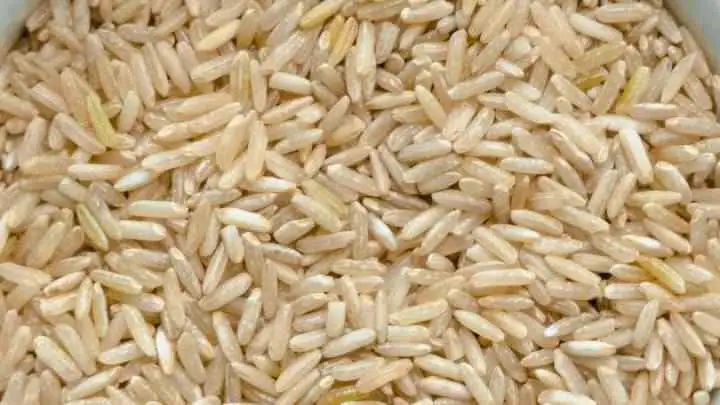Is jasmine rice good for diabetics? General white rice can make a tasty dish, but after a while, it could get boring, and you’re out again looking for an alternative.
If you are diabetic, your priority will be to find a substitute grain that wouldn’t trigger your underlying health issues.
Perhaps you are one of those wondering if jasmine rice is good for diabetics.
The answer is yes, but when consumed in moderate portions. However, due to the high glycemic index, jasmine rice may cause a blood sugar spike.
This article discusses the influence of jasmine rice on diabetes. You’ll also discover the best ways to apportion your meals and manage your health. But first, let’s discuss what jasmine rice is and how good it is for diabetics.
What Is Jasmine Rice?
Jasmine rice is a form of long-grain rice that has a slightly sweet flavor, sticky texture, and a very fragrant aroma. It is often used in Asian cuisines, and because it is relatively easy to cook, it has also become prevalent in the Western world.
Presently, jasmine rice is available in a variety of colors like brown, white, etc., and is a perfect substitute for plain long-grain white rice.
SEE: The Difference Between Calrose Rice and Jasmine Rice
Is Jasmine Rice Good for Diabetics?
Yes, jasmine rice is good for diabetics when consumed in small portions.
It has a high glycemic index which can cause blood sugar levels to spike more after eating but remains a healthy choice when consumed in small portions.
The effects of jasmine rice on your health will be determined by:
- How much rice do you eat at once (the quantity you consume in a sitting)
- What other foods do you pair your jasmine rice with
- How you cook it
- How you like to eat rice
- And finally, your choice of rice variety (white or brown jasmine rice)
To sum it up, a smaller amount of jasmine rice, say between 35g – 40g will pose a very minor/insignificant threat to your health than a plate full of rice.
SEE: If Rice is Good for Weight Loss
Is Jasmine Rice Better for Diabetes?
Yes, it is when consumed in small portions. Jasmine rice is better for people with diabetes. It is rich in fiber, which helps lower cholesterol levels, maintain bowel health, achieve a healthy weight, and more.
Over time, there have been different opinions on whether jasmine rice is better for diabetics or not.
Because of its high glycemic index, it is known that jasmine rice can cause a sharp increase in blood sugar levels, which can lead to further complications for people who have type 2 diabetes.
Conversely, others believe that as long as you eat jasmine rice in moderation, it should not pose any problems.
Both statements are correct. To stay healthy, consume jasmine rice in small bits, alongside other healthy foods.
Is Jasmine Rice Good for Type 2 Diabetes?
Yes. As a general rule, jasmine rice can make up a healthy diet for type 2 diabetes if consumed in moderation.
When pairing jasmine rice with other foods, work towards getting a balanced mixture of protein and fat (it’ll normalize your blood glucose levels).
If you still have doubts about eating jasmine rice with type 2 diabetes, confide in your doctor or dietitian.
Is Brown Jasmine Rice Good for Diabetics?
Yes, brown jasmine rice is good for diabetics. This is because it has a medium glycemic index score of 55, which means it doesn’t cause blood sugar levels to spike as much as white rice.
A ¼ cup of uncooked jasmine rice contains 2 grams of fiber, which is beneficial since it can help regulate digestion and blood sugar levels and improve blood lipid profiles.
If you have diabetes, please speak with your doctor or dietitian about whether jasmine rice is a good choice for you. They can give you specific advice based on your health needs.
Is White Jasmine Rice Good for Diabetics?
Yes, it is. White jasmine rice is good for diabetics. However, it has a higher glycemic index than brown jasmine rice, which can cause blood sugar levels to spike more after eating. It still doesn’t mean that white jasmine rice is necessarily bad for diabetics.
If you eat white jasmine rice in moderate quantities alongside healthy foods like soup, lettuce wraps, etc., you will have a healthy diet.
SEE: What You Can Win At Zaxby’s Restaurant
Is Jasmine Rice Safe for Diabetics?
Yes, jasmine rice is safe for diabetics. However, it is essential to remember that all carbohydrates affect blood sugar levels, so eat them in moderation.
For instance, you can decide to pair a small portion of jasmine rice- 30-50g, with chicken or pork, which are rich in protein and fat. That way, you can enjoy your meal, and rest assured it won’t increase your blood glucose level.
What Is the Glycemic Index?
This index rate measures carbohydrate-containing foods based on the effect they have on blood glucose levels. In essence, it assigns a number for each food item.
On the other hand, the glycemic load (GL) measures the pace with which a given food raises blood sugar levels after eating. It considers the glycemic index and the number of carbohydrates available in a specific meal.
The glycemic index of jasmine rice ranges from 70 to 89, which means it is considered a high-glycemic food.
If you have diabetes, include foods that are high in protein, fat, and vitamins in your portion of jasmine rice. That way, you’ll have a balanced measure of nutrients.
Benefits of Jasmine Rice for Diabetics
Jasmine rice is a great choice for people with diabetes and is considered one of the best-selling rice.
Some of its benefits include:
- Good source of energy
- Jasmine rice is a good source of fiber (fiber helps to regulate blood sugar levels)
- Great for digestion
- Good source of iron
- Boosts immunity
- Good source of vitamins (e.g., vitamin B1, vitamin B6)
- And it is safe to consume during pregnancy
How Much Can a Diabetic Eat?
The portion of jasmine rice a person with diabetes can eat will depend on many factors, most of which will be discussed below.
As a general rule:
- 100 g of Jasmine Rice will supply 26.25 (low) glycemic load
- 250 g of Jasmine Rice will give a 65.6 (medium) glycemic load
- 500 g of Jasmine Rice will deliver 131.25 (high) glycemic load
- 1 Kg of Jasmine Rice will give a 262.5 (very high) glycemic load
- 1 Cup of Jasmine Rice (150 g) will provide a 43.7 (low) glycemic load
If you currently have diabetes, limit your intake of all types of rice, including jasmine rice.
Brown rice is equally a better choice for people with diabetes. It has a lower glycemic index and is very rich in fiber compared to white jasmine rice, which has very minimal fiber (because it’s highly processed).
Tips for Eating Jasmine Rice if You Have Diabetes
Highlighted below are some of the ideal ways to eat jasmine rice:
- Eat a small amount: Carbohydrates can affect blood sugar levels, so it’s important not to overdo them.
- Pair it with other healthy foods: Include lean protein and vegetables to make a complete meal.
- Watch your portion size: Jasmine rice is a high-carbohydrate food, so a little goes a long way.
- Monitor your blood sugar levels after eating: This will help you see how jasmine rice affects you personally.
SEE: Get Free Food At Rubio’s Coastal Grill
FAQs
Is Jasmine rice healthy for weight loss?
Yes, jasmine rice is a healthy option for weight loss. However, that’ll only happen if you ration your intake.
Brown jasmine rice contains a lot more fiber than the white option and is unarguably the best option for weight loss.
Is Jasmine rice gluten-free?
Yes, jasmine rice is gluten-free. Whether you’re eating white or brown jasmine rice, unprocessed rice is usually gluten-free.
Can you eat white and brown rice while pregnant?
Yes, you can. Jasmine white and brown rice contain folic acid, which has lots of health benefits like averting neural tube defects.
SEE: If Uncle Ben’s Rice Is Healthy And Safe For You
Conclusion
Is jasmine rice good for diabetics? Yes, jasmine rice can be part of a healthy diet for people with diabetes if consumed in a small amount.
When pairing jasmine rice with other foods, always aim for a balance of carbohydrates, protein, and fat for a nutritious and balanced diet.
Thank you for reading.
Did you love this article? You can get more helpful health and wellness tips right here on Cheffist.






